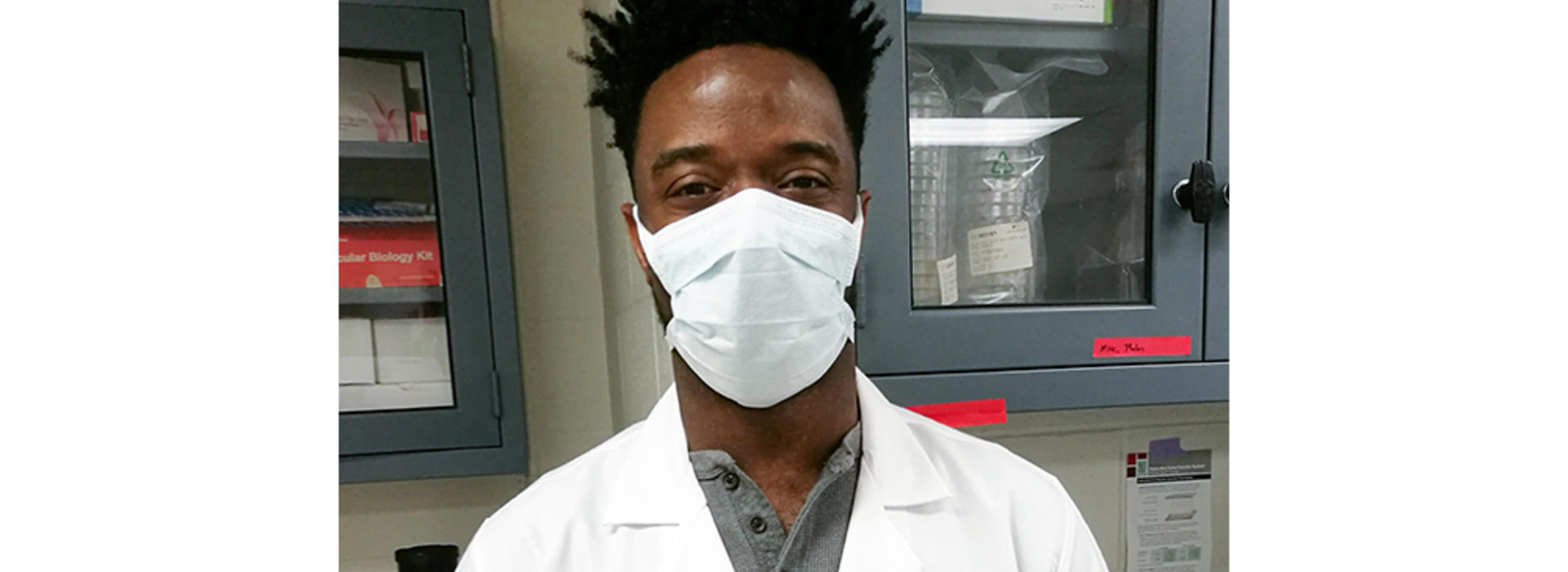
Glenn Simmons Jr., PhD, Provides Solution for Some COVID-19 Health Disparities
A drive to lead cancer research and help close the gap on health disparities brought Glenn Simmons Jr., PhD, to the University of Minnesota Medical School three years ago. Trained as a molecular biologist, his first experience at the Medical School’s Duluth campus felt all too familiar.
“Duluth, in a way, reminded me a lot of the school that I trained at. It’s a smaller school, and it has a very specific minority health focus,” Dr. Simmons said. “Coming into a teaching faculty position meant there were no guarantees that I would have opportunities to really push my research agenda, but my department head gave me assurances when I came on that she was willing to support my growth.”
And, she meant it. Today, Dr. Simmons has the best of both worlds—his own lab and an opportunity to teach as an assistant professor in the Department of Biomedical Sciences.
Finding Solutions for Health Disparities in Cancer
Dr. Simmons and his lab began focusing on cancer and identifying potential biomarkers, but through the power of research, uncovered new information that changed the course of their studies.
“We started looking at the tumor microenvironment, and our preliminary data suggest that the presence of certain types of fat can actually be beneficial in the context of cancer,” he said. “If you have a high level of unsaturated fatty acid in a cell, then you actually change the way those cells behave in terms of their ability to be sensed by the immune system.”
Dr. Simmons says that finding may explain why cancer is more common now than ever recorded in human history—a credit to today’s high-caloric, fatty diets.
“We are being overfed. We have so many nutrients available in our diet, and because of that, we end up with individuals with high levels of fat in their bodies,” he said. “We’re looking to find a strategic way to change the fatty acid content in the tumor microenvironment to modify the tumor’s ability to evade the immune system.”
Finding Solutions for Health Disparities in COVID-19
His cancer research will contribute to science as a whole, hopefully, making an impact on health disparities down the line. But when COVID-19 began sweeping the nation, a unique opportunity emerged to serve the underserved now—he has developed a new testing strategy that may provide better COVID-19 tracing data to communities across Minnesota.
“Some populations can’t afford to get tested or they’re being turned away for various reasons, whether it’s blatant discrimination or prioritizing those who are showing symptoms. You have hundreds of thousands of people who are probably infected and are not being detected,” he said.
Now through the fall, Dr. Simmons will test for COVID-19 in wastewater from treatment facilities statewide. The goal is to develop an algorithm that will better estimate prevalence of the virus in both rural and urban communities, overcoming limitations imposed by current population testing strategies.
“I hope that by doing this, we will be able to use diagnostic testing as a secondary way of identifying rampant infections in the population,” Dr. Simmons said. “We know that those tests are never going to be enough because you just can’t touch everyone.”